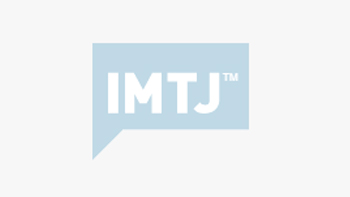The Advertising Standards Authority is the UK’s independent regulator of advertising across all media. It has ruled that advertising on medical tourism by Operations Abroad is misleading and fails to meet the required legal standards.
Operations Abroad Worldwide is a Manchester based medical tourism agency and the advertising was on the Operations Abroad website promoting medical services outside of the UK, with information about the care package available and included the text “You’ll receive first-class medical care in a totally safe environment free from MRSA or other infections” and “To date we have achieved a 100 per cent success rate”. The complainant, a doctor, challenged whether the two claims were misleading and could be substantiated.
Operations Abroad Worldwide said they worked with 80 hospitals in 40 countries worldwide and that in these countries they provided first class medical care. They said each of the hospitals they worked with were required to meet a set of criteria, including luxurious patient rooms, surgeons being at the highest medical level, statistics showing very low risk post-surgical complications and data reports and analysis showing no infections present in the hospital. Furthermore, they said most of their hospitals were accredited through recognised accreditation programmes and all hospitals were ISO 9001 certified. They provided details of the bodies to which they said the hospitals in the group were accredited along with specific details of the accreditation processes for two of those bodies. They also supplied the links from the accreditation bodies for two hospitals which they said were in the group.
They said that before they agreed to work with an overseas hospital, as part of the hospital inspection process, those hospitals would have to prove they had no history of MRSA or other hospital infections. They explained that all testing was carried out by their respective local government health and hygiene boards and that typically, they entered the hospital once or twice a month without prior notification and performed tests on various areas of the hospital.
They stated that 100% claim was a reference to surgical procedures and that it had been achieved by meeting specific protocols such as ensuring the patient was suitable for travelling abroad for surgery, working with highly trained surgeons and working in hospitals with very strict hygiene and infection protocols. They stated that they had never had a patient who had not had a successful surgery procedure. They explained that patients who travelled abroad with Operations Abroad Worldwide were provided with a 12-month aftercare policy and that to date, no patient had needed to make a claim on the insurance policy. Finally, they said all of the patients who had completed the patient satisfaction survey questionnaires had been 100% satisfied.
The ASA considered the claim “You’ll receive first-class medical care” would be understood by consumers as general reference to the overall medical service patients would experience. It considered the criteria outlined by Operations Abroad Worldwide was likely to meet that expectation provided it was supported by documentary evidence. However, whilst the ASA was provided with the details of the bodies to which Operations Abroad Worldwide said the hospitals in the group were accredited (along with links to the websites where the processes of two of those accreditation bodies were explained), evidence of only two of the 80 individual hospital accreditations in the group were supplied.
The ASA considered the claim “… in a totally safe environment free from MRSA or other infections” would be understood by consumers as an absolute claim that treatment through Operations Abroad Worldwide would take place in a facility in which there was no presence of MRSA or other bacteria and therefore no risk of hospital acquired infections. It considered it likely that government health departments in the relevant countries were in a position to establish levels and risks of MRSA and other infections in their country’s hospitals. Operations Abroad Worldwide said that it was satisfied that the 80 hospitals they worked with had no infections detected by their government health departments, but no supporting documentary evidence from those government health departments was supplied.
The ASA considered that the claim on safety had not been substantiated and was therefore misleading. The advert breached CAP Code (Edition 12) rules 3.1 (Misleading advertising), 3.7 (Substantiation) and 12.1 (Medicines, medical devices, health-related products and beauty products).
The ASA considered the claim “To date we have achieved a 100 percent success rate” to mean that all customers who had received treatment through Operations Abroad Worldwide were completely satisfied with the treatment received and that any surgery or treatment carried out had achieved its mutually agreed objectives and had been free from complications.
The ASA agreed that the lack of claims against patient’s aftercare insurance policies could support the claim further but noted that no evidence to demonstrate the lack of insurance claims was supplied.
It considered it likely that a patient satisfaction questionnaire was capable of supporting success claims. The ASA considered that in order to support the specific claim in the ad, Operations Abroad Worldwide would need to demonstrate that all patients who had used their services had completed a customer satisfaction survey and were satisfied with the results and the service received. It understood that not all patients had completed a customer survey and that it was therefore not possible to establish a 100% success rate. The ASA therefore considered the claim had not been substantiated and concluded that the ad was misleading.
The conclusion is that the ad breached 3.1 (Misleading advertising) and 3.7 (Substantiation). The advert should not appear again in its current form. The ASA told Operations Abroad Worldwide to ensure it held robust evidence to support its marketing claims.








 ©2024 All rights reserved LaingBuisson
©2024 All rights reserved LaingBuisson 


